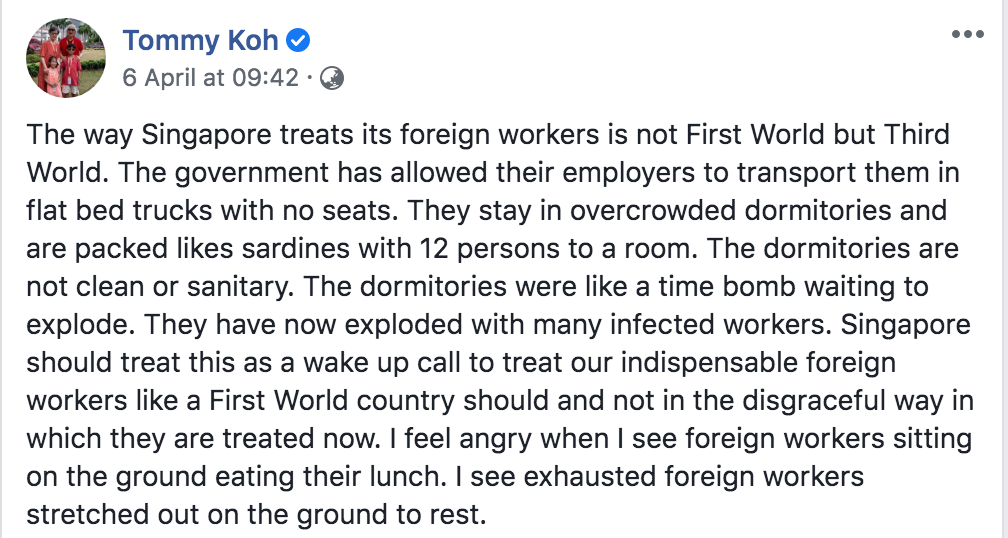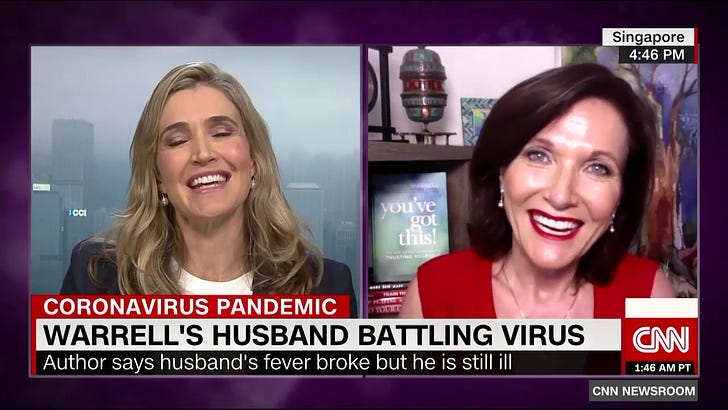Hi and welcome to another issue of GE20Watch, an election watch newsletter that curates the latest news about Singapore’s upcoming General Election.
With the recent escalation of Covid-19 cases in Singapore, as of April 7th, Singapore is now under a ‘Circuit-Breaker’ (CB) until May 4th. This means Singaporeans must stay home as much as possible and go out only for essential services, and gatherings at home and public spaces are now banned. Non-essential businesses and services are closed.
As such, elections will almost definitely not be called during this period. Nevertheless, a bill to allow special arrangements for this GE was introduced in Parliament, with measures such as allowing electors subject to stay-home orders to vote outside of their electoral divisions, and aspiring candidates can authorise a representative to file nomination papers on their behalf. The bill will be debated and most likely passed at the next sitting, and elections should be called soon after, unless the situation deteriorates further.
If you’ve been forwarded this newsletter or clicked on it via social media, click below to receive regular updates via email!
And if you like what you read, give this newsletter a share below or forward it to anyone you think could benefit from this! :)
This week, we have an anonymous contributor who has submitted an op-ed on how the recent spike in Covid-19 cases may impact the electoral chances of the PAP, who were receiving plaudits for their handling of the crisis and seemed set to run away with victory. Read on below!
CAN THE PAP STEM THE TIDE?
GE2020 will likely function as a referendum on the performance of the People’s Action Party (PAP) with regards to the novel COVID-19, to the extent that two factors hold true. Firstly, that Singaporeans continue to use “performance legitimacy” as a barometer of political success. This means that Singaporeans, instead of judging the PAP based on certain principles or values, evaluate the PAP’s success based on its “performance” and track record of achieving economic growth and stability, like a private corporation. Second, that the recency effect, the phenomenon where people take most into consideration something that has happened recently, compared to remembering something that may have occurred a while back, plays a big role.
If these assumptions hold, then it seems that most would agree that the PAP will receive a very considerable vote share for having delivered Singaporeans safety and leadership in this time of crisis.
The numbers don’t lie - Singapore has one of the highest testing rates in the world (around 11,000 tests per million in the population), an extremely low death rate (1 per million in the population), and a commendable stimulus packages to cushion the economic blow. Singapore’s contact-tracing capacities were also lauded internationally. The Lancet, the world’s top academic medical journal, used Singapore as its model and concluded that "Enhanced surveillance and contact tracing is essential to minimise the risk of widespread transmission in the community”. Singapore was thus held up as an example of the benefits of having large surveillance capacities.
The result is that since at least mid-February, Singapore has been taken as the “gold standard”, and has been consistently praised by the international media.
If the coronavirus had dropped dead by the second week of March, Singapore’s would not have seen more than 13 new cases in a single day. This would be flattening the curve at its very best. Even on the 26th of March where the government unveiled its S$48 billion stimulus package, the rate of infections would still be extremely impressive when placed alongside other countries. Should the two factors introduced at the start of the article hold true, the PAP’s electoral performance would likely be spectacular. The sentiment for many was that the PAP had won over the electorate, and it seemed likely that the election would be called by early April to maximise their electoral gains.
Things have taken a very different turn since the 26th of March, as cases have nearly tripled in 2 weeks. While there were 683 cases, or 116 cases per million, on March 26th, there are now 1,910 cases in total, or 326 cases per million as of April 9th. This puts Singapore far ahead of Hong Kong, South Korea, New Zealand and Australia - all of whom have similar testing numbers.
The teams in charge of contact tracing have found it difficult to keep up. On the 26th of March, the number of unlinked cases was just 42. It is now 236.
Based on pure numbers, the trend is certainly alarming. Should this continue, international headlines would likely follow. The BBC, as part of Breaking News, has already paid attention to the spike on April 9th.
But the spike did not come primarily from what the government described as "our own community”, but from a separate category: migrant workers. April 9th also saw a record 287 new cases in Singapore, with 219 infections linked to dorms with foreign workers. This is almost double the highest daily spike of 142 cases seen the day before. Since April 4th, more than one third of the recent COVID-19 clusters have emerged from migrant worker dormitories. On April 5th, the government announced that two dormitories housing more than 20,000 migrant workers would be gazetted as isolation areas to stem transmission of the coronavirus in the community. The numbers seem set to keep rising in the near future. These workers live in unsanitary conditions with little space, where there are 12 to 20 to each room - a perfect combination for the virus to continue spreading. In response, the Ministry for Manpower has committed to stepping up cleaning operations in the quarantined dormitories, seeking to "prioritise the well-being of workers who remain healthy."
National Development Minister Lawrence Wong, co-chair of the multi-disciplinary task-force tackling the coronavirus, announced on 9th April that “all of us will have to be mentally prepared for the number of cases in dorms to rise”, and that he would have done differently with the benefit of hindsight, but the situation was “unpredictable”.
But for many, this was certainly not unpredictable, nor without ample warning. In early March, doctors from HealthServe maintained that migrant workers represent “the weakest link” in the public health chain, and attempted to bring attention to the worrying lack of provisions for the migrant community. In a letter to local broadsheet The Straits Times, Transient Workers Count Too (TWC2) president Debbie Fordyce, warned about the risk of a cluster of cases in the dormitories. These warnings seem prescient in the wake of recent events.
The issue with migrant workers has become probably the most prominent issue on social media as of late for Singaporeans. Distinguished ex-diplomat and international lawyer Professor Tommy Koh’s Facebook post specifically chastised the government for failing to ensure that employers had made sure the necessary precautions were taken (https://www.facebook.com/tommy.koh.752/posts/2477020985848840).

This certainly paints a different complexion on the ruling party’s electoral prospects. While just two weeks ago the PAP seemed destined to call elections by early April and surpass its 69.9% total vote share in the last election, it looks inconceivable that an election will be called till at least May.
Should they fail to stem the tide by affording adequate care, facilities and testing for the migrant workers, cases will likely continue to spike. Singapore may completely lose its title of the world’s model in how to tackle the coronavirus. This will have significant ramifications in how the PAP’s performance is measured, and consequently impact its electoral performance.
More than numbers and performance, there is something especially uncomfortable about the PAP government’s handling of the new clusters in the dormitories. There is the impression that the migrant workers were seen as second-class citizens, and were not deserving of the same care and attention.
COVID-19 is a unique phenomenon, and in many ways serves as a test of a society’s treatment of its most vulnerable. Due to its highly contagious nature, the whole nation stands to suffer if anyone catches the virus. A country is only as strong as its weakest person, and this means that those previously invisible or those that occupy the lowest classes in society will eventually be case into the spotlight. Societies that take inequality seriously and take care of its most vulnerable would therefore continue to stand tall. Societies that erase those at the bottom, treating them as disposable or invisible, will be exposed.
In this regard, as things stand, the PAP has irrefutably failed this test. For the sake of everyone living within our borders, especially our migrant worker friends, the hope is that they can pull off a remarkable turnaround.
Thanks for reading GE20Watch! If you’ve liked what you’ve read so far, click below to share.
If you want to receive such posts via email on a regular basis, click below to subscribe.
If you have any questions or want to get in touch, you can reach me at ge20watch@gmail.com



